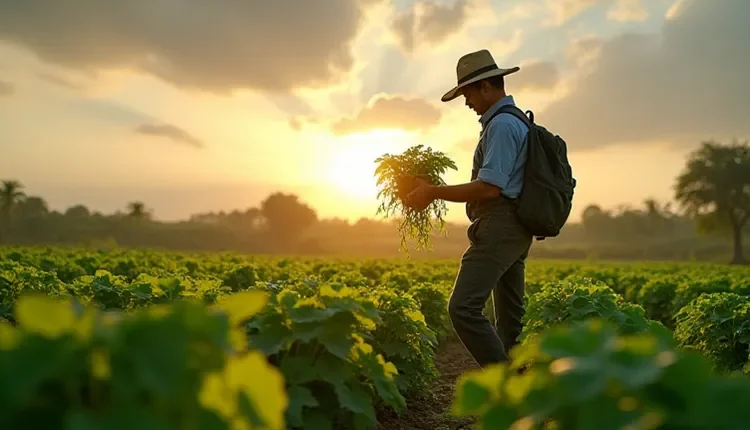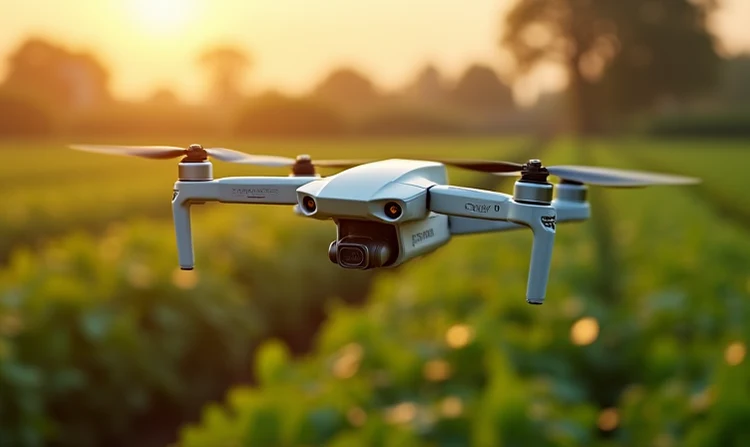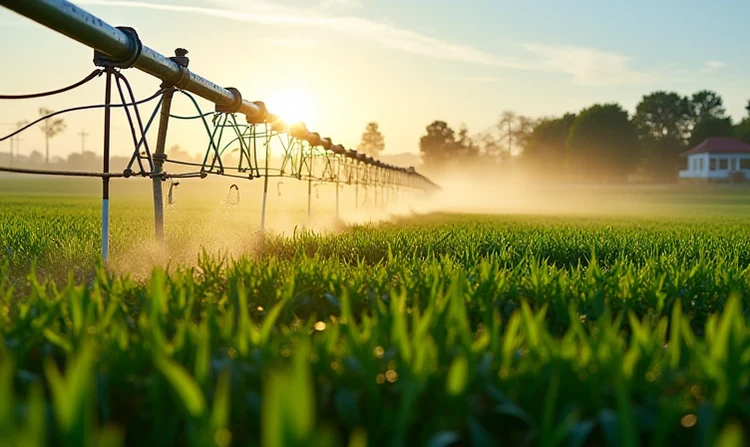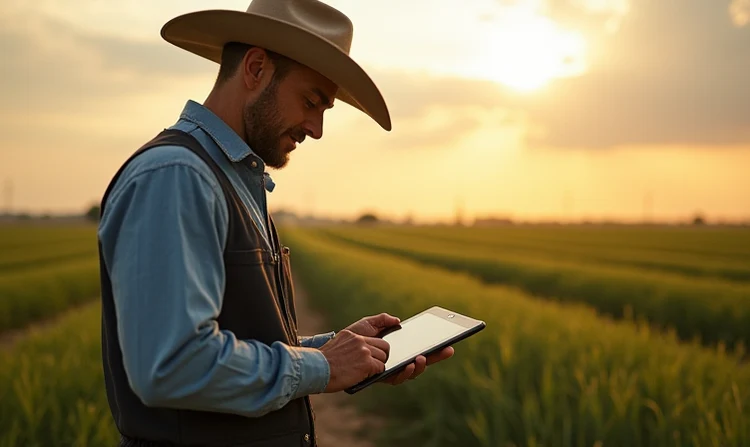🌱 Sustainable Cultivation with Agrotechnologies: A New Look at Farming 🌾
Have you ever wondered how modern agricultural technologies can change our understanding of sustainable farming? In recent years, the focus in agriculture has shifted towards ecology and sustainability, opening up new horizons for farmers and consumers. Buy eco-friendly farm supplies here.
🌾 A new look at agricultural technologies
The shift to sustainable farming practices isn’t just a trend—it’s a necessity. By using innovative agricultural technologies, farmers can increase yields while reducing their environmental impact. Resources like AgriTech Tomorrow ( AgriTechTomorrow.com) and Sustainable Agriculture (SustainableAgriculture.net) provide valuable information on the latest advances in this area.
🌿 Principles of sustainable cultivation
Sustainable farming begins with understanding the importance of conserving resources and maintaining ecological balance. This includes using natural fertilizers, minimizing pesticide use, and conserving water and soil.
🤖 Innovative technologies in the agricultural sector
The use of innovative technologies such as precision farming, drones and automated irrigation systems are helping farmers improve efficiency and reduce their environmental footprint.
🍀 Application of sustainable practices in agriculture
Sustainable farming practices not only help preserve the environment, but can also increase farm profitability.
🌳 Organic farming
Organic farming eliminates the use of synthetic fertilizers and pesticides. This improves the quality of produce and the health of the soil. Resources like the Organic Farming Research Foundation (ofrf.org) provide information and support in this area.
💧 Smart water management
Efficient water management through drip irrigation and rainwater harvesting systems helps reduce water consumption and prevent water depletion.
🌻 Implementation of crop rotation
Crop rotation helps maintain soil fertility, reduce the need for fertilizers, and prevent soil erosion. Crop rotation is a key element of sustainable farming.
🐝 Biodiversity and ecosystem protection
Maintaining biodiversity on farms helps to resilience of ecosystems. Creating conditions for beneficial insects and birds to live helps to control pests and improves pollination of plants.
| Practice | Advantages | Example y |
|---|---|---|
| Organic farming | Improving product quality, soil health | Use compost, refuse chemical fertilizers |
| Water Resources Management | Reducing water consumption, protecting water resources | Drip irrigation, rainwater harvesting |
| Crop rotation | Soil fertility, reduced need for fertilizers | Alternation of grain and legume crops |
| Biodiversity | Ecosystem protection, natural pest control | Creating corners for insects and birds |
📈 Economic benefits of sustainable agricultural technologies
Sustainable agricultural practices not only help protect the environment, but can also be economically beneficial for farmers.
💲 Cost reduction
Adopting sustainable practices such as using natural fertilizers and efficient water management helps reduce farm operating costs.
📊 Increase in income
Organic produce often sells for a higher price, increasing farmers' incomes. Sustainable practices can also increase crop yields by improving soil health.
🌍 Access to new markets
Demand for organic produce is growing, opening up new markets for farmers using sustainable practices.
🏛 State support and subsidies
Many countries offer financial support and subsidies for sustainable farming, further increasing its attractiveness and accessibility.
| Aspect | Economic advantage | Example |
|---|---|---|
| Cost reduction | Less spending on chemicals and water | Using compost and drip irrigation |
| Increase in income | Higher prices for organic products | Sale of organic vegetables and fruits |
| New markets | Access to eco-conscious shoppers | Export to countries with high demand for organics |
| Government support | Financial incentives and subsidies | State programs to support organic farming |
⁉️🤔 Popular questions and answers
- What are the main benefits of sustainable agricultural technologies?
Sustainable agricultural practices improve soil health, reduce environmental impacts and can increase farmers' incomes by increasing demand for organic produce.
- What equipment is needed to transition to sustainable farming practices?
Key elements include drip irrigation systems, rainwater collection and storage equipment, and tools for processing organic fertilizers.
- Is sustainable farming more expensive?
Initial investment may be higher, but sustainable practices often prove cost-effective in the long term due to lower operating costs and access to new markets.
- What support is available for farmers moving to sustainable practices?
Many governments and international organizations offer grants, subsidies and training programs to support sustainable agriculture.
- What effects does sustainable farming have on the environment?
Sustainable agriculture helps preserve biodiversity, reduces water and soil pollution, and helps reduce greenhouse gas emissions.
💎 Results and conclusions
Sustainable agricultural practices and ecological cultivation methods play a critical role in preserving the environment and ensuring food security. They not only improve soil quality and reduce the impact on the ecosystem, but also open up new economic opportunities for farmers. The transition to sustainable methods is not just an environmental choice, it is a strategy for a sustainable future in agriculture.



